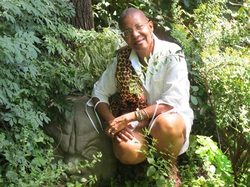
See Expanded Biography
A SHORT INTERVIEW
Interviewer is Kevin Heslop
KH: When did you begin writing poetry?
NP: I began some four decades ago. I began as a way of exploring my life -- being female, African descended from the Caribbean but living in a foreign country. I also used it as a way of exploring my history.
KH: What or who have been the biggest influences on your poetry over your life?
NP: My childhood in Tobago has been a tremendous influence on my writing life. In terms of writing the writers who have been seminal -- Audre Lorde, James Baldwin and St. John Perse.
KH: Can you say something about how your poetic style evolved, and what you generally try to accomplish in your work?
NP: When I wrote She Tries Her Tongue; Her Silence Softly Breaks I became aware that the idea and issue of Language had chosen me and that I would spend the remainder of my writing life exploring this issue in various ways.
KH: From having heard you read, one suspects the speaking of the language, the reading of poetry aloud, adds something to the written word. If this is the case, what, or how, is that something?
NP: I don't know if I can answer that question but perhaps what happens is simply the embodying of the word that exists on the page. I have always considered myself page-bound, since I didn't work in the spoken word genre, so it is in a way as much of a surprise for me to find myself working more intensively in a performative mode.
FIVE POEMS
1.
Cashew
firm-fleshed
red pendulous breast
nipple
hardened into promise
in seed
curled green foetus
the cashew
hangs
longs for the sharp white teeth of girls
their tiny perfect tongues
licking its juice that
stains the white gowns
marks them with desire
as racing
nightdress sails
masted with slender sinewy
mahogany of limbs
lengthening into a future
perfect
they hurtle
toward the unfurl
in girl
©M. NourbeSe Philip
2.
big questions
why does a chicken always cross a road
and b follow a when the worm turns why
don’t we tell it like it was and what
did you say the time
was when the zebra changed
its stripes and is it true
what they say who is
they did humpty
dumpty jump or was he
pushed when led to the water
why didn’t the horse drink why
isn’t the earth flat and how do you close
a basket case when you say I am and
how do you say you are can
you kill three birds
with one stone when the
birds in the bush seduce
the one in your
hand
©M. NourbeSe Philip
3.
Upon Considering the Possibilty of Friendship Between Tia and Antoinette
(In Progress)
a cheek split
in two wrongs can't
make it right
between history and
a hair-splitting
cheek-splitting
truth
"the cheek of her
taking my dress!"
undressing the theft
the take and took
in history
can't draw blood from
a stone
or a tear
spill the causes
of a cheek
white
split
by the hard in stone
the me and she
in black words
on a white page
where a stone lands
on a cheek
split by the
hurl
pelt
the fling in stone
in history
heals
not the heart
smashed ground
in the between of past
and future
grindstones
exacting a finely
powdered present
to scatter wide
to the winds
Friends, you say?
Only a stone’s throw away
©M. NourbeSe Philip
4.
Zong! # 2
the throw in circumstance
the weight in want
in sustenance
for underwriters
the loss
the order in destroy
the that fact
the it was
the were
negroes
the after rains
_______________________________________
Wafor Yao Kehinde Bolade Kibibi Kamau
©M. NourbeSe Philip
5.
Fall
the year turns
curls
around itself
a leaf whose time has come
to fall
towards earth
and itself
its own beginning
and the racoon whose soft curled pelt
mocks the memory of birth
is its own tombstone
on the wet black road.
©M. NourbeSe Philip
THE EVENT
WHERE: The Mykonos Restaurant at 572 Adelaide St. North, London, Ontario. The restaurant has a large, covered terrace just behind the main restaurant, which comfortably holds 60 poetry lovers. Mediterranean food and drinks are available. Overflow parking is available across the side street and in the large lot one block north, in front of Trad’s Furniture.
WHEN: December 4th, the first Wednesday of the month, as with most of our events.
LIVE MUSIC, live music will begin at least by 6:30. There is also an intermission also with live music.
THE FEATURED POET: M. NourbeSe Philip will begin reading shortly after 7:00, followed by a Q&A.
OPEN MIC: Following the featured poet, there is about 1.5 hours of open mic, ending about 9:00 pm. Each poet has five minutes (which is about two good pages of poetry, but it should be timed at home). NOTE: WE WILL NOT BE SELECTING NAMES AT RANDOM, BUT, AS IS TRADITIONAL AT MOST POETRY OPEN MICS, POETS WILL WRITE THEIR NAMES IN A SPOT OF THEIR CHOOSING ON A LIST AT THE DOOR. They will also be asked for their email addresses and whether or not we can photograph and videotape them reading.
RAFFLE PRIZES: Anyone who donates to London Open Mic Poetry Night receives a ticket for a raffle prize, three of which will be picked. The prizes consist of poetry books donated by Brick Books and The Ontario Poetry Society. Donations are our only source of income. We still haven't paid off our initial debt.
EBOOK ANTHOLOGY: Our annual ebook is an anthology of the poets who have read during the year, including both the featured poets, with one or two poems by each, and the open mic readers, with from one to a few, depending on length, from each of those who wish to participate, no matter how many times they read. The ebook will then be available on Amazon at the end of the season, at a few dollars each, used to help offset expenses. If anyone gives us more than several poems, we will select from them. All poems that are included must have been read at the events during the season. The ebook will include a short biography (up to seven lines) of each poet. This must be included with the poems. We may also add a photo of the poet reading at the event. This hasn’t been decided yet. To keep transcription errors from creeping into the poems, the preferred way to get them to us is by email. Those who don’t use email can give us a copy at the events. A cautionary note: Some poets may not want certain poems to be included in the ebook because it would make them unacceptable for later publication in certain poetry journals. Erik Martinez Richards will edit and publish the anthology. His email address is erikf1944@hotmail.com
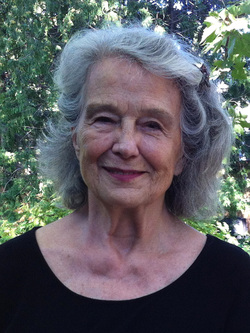
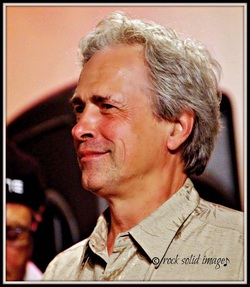
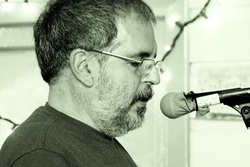
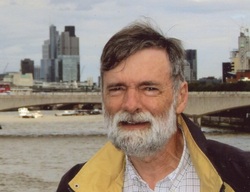
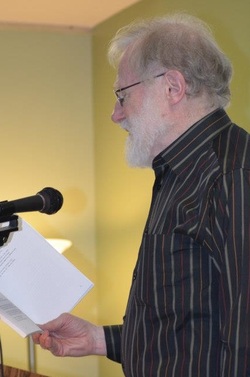
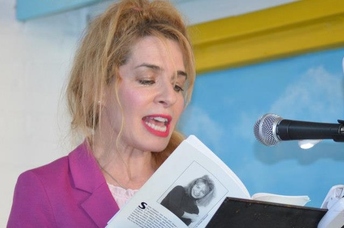
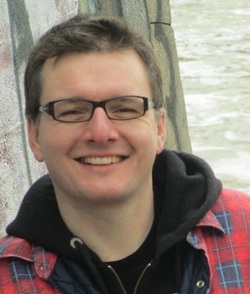
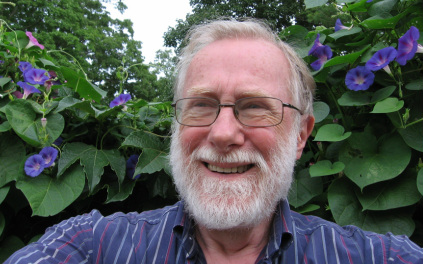
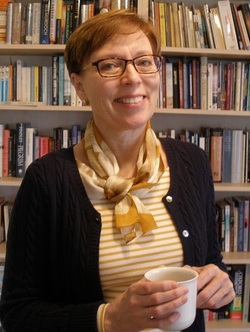
 RSS Feed
RSS Feed